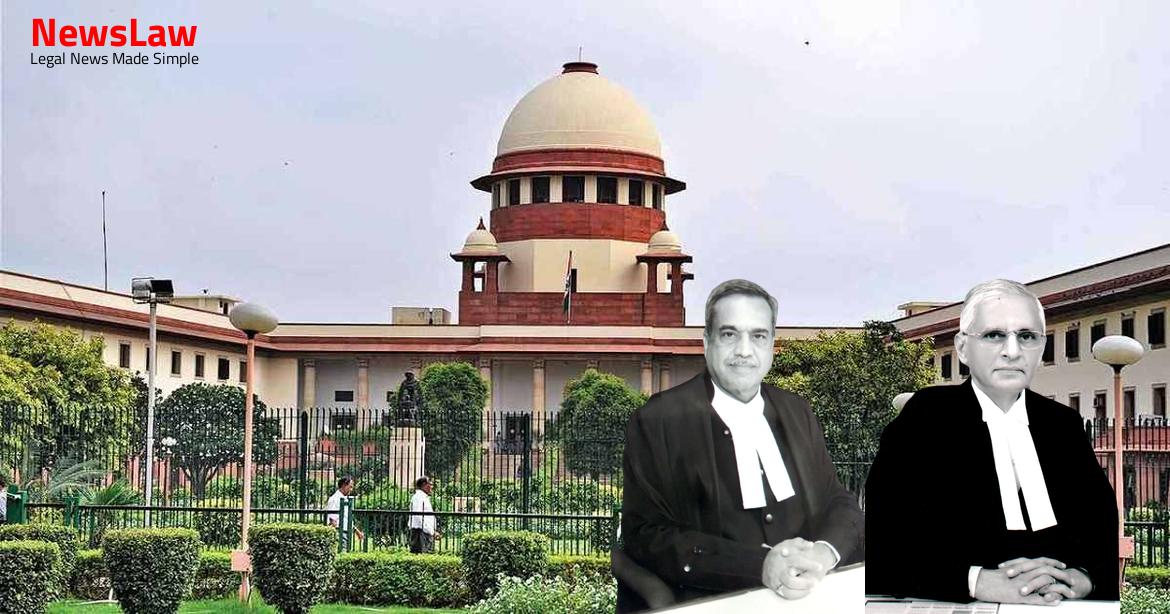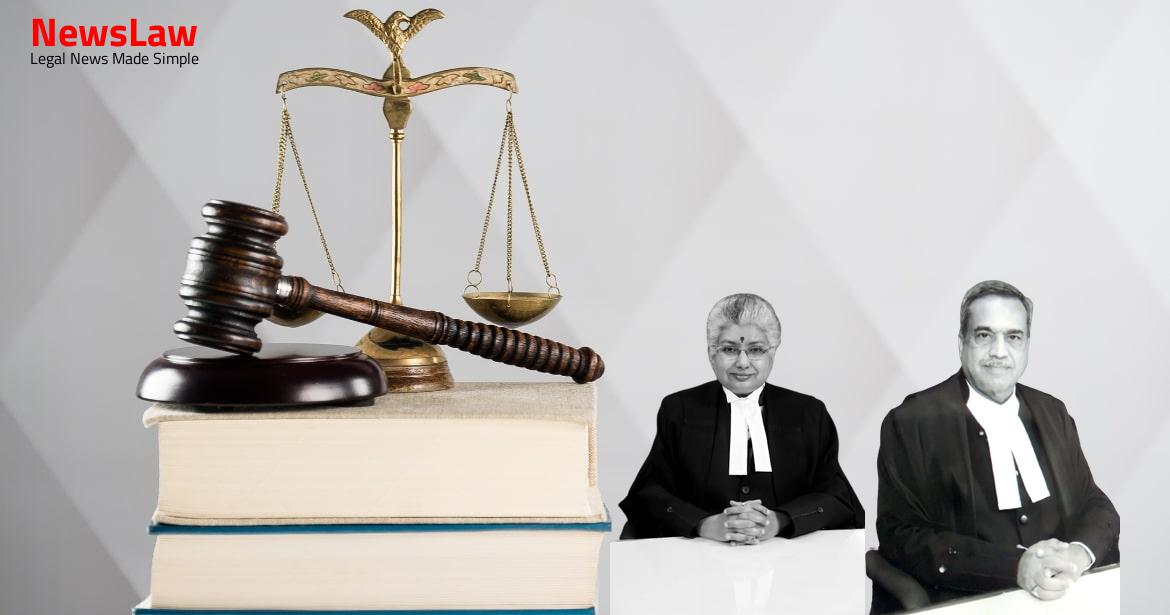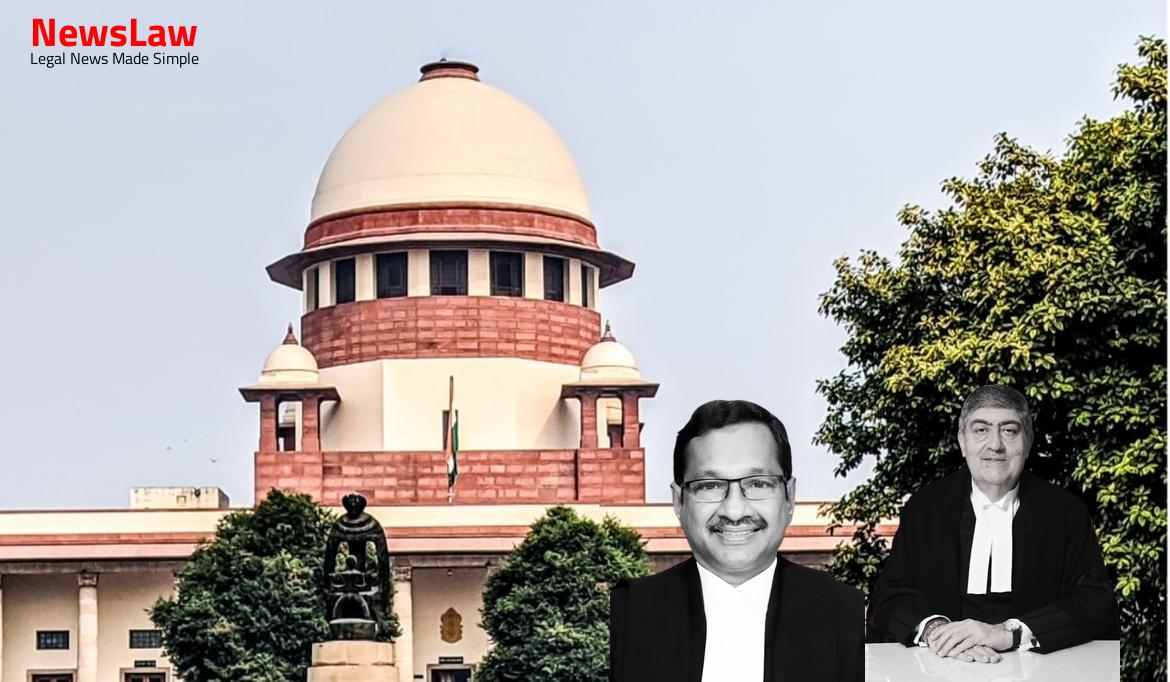A short but interesting question of law arises in these cases, which is, whether the deposit of surplus funds by the appellant Clubs by way of bank deposits in various banks is liable to be taxed in the hands of the Clubs or, whether, the principle of mutuality would apply and the interest earned from the deposits would not be subject to tax under the provisions of the Income Tax Act, 1961 (hereinafter referred to as “the Act” for the sake of convenience).
Triology of cases: a) Bankipur Club In this case, twenty-three cases including seven appeals which were de-linked were classified into five groups which are as under: 5 (i) Group A concerned the question with regard to profits arising from the sales made to regular members of a club, being entitled to exemption on the doctrine of mutuality. (iii) Group C cases pertained to the question, whether, chambers in the building of a club let out to members, annual value of a club house and pavilions and income earned from such properties owned by a club was liable to be taxed. It is seen that the income that was sought to be assessed in the case of the assessee, was one derived from property let out and also interest received from FDR, NSC etc. (emphasis by us) 7 b) Cawnpore Club
Also Read: https://newslaw.in/case-type/criminal/crl-a-no-003549-003552-2023/
In Bangalore Club, the question was, whether, for the relevant assessment years, the said Club rightly sought an exemption from payment of income tax on the interest earned on the fixed deposits kept with certain banks, which were corporate members of the said club, on the basis of doctrine of mutuality. Having regard to the fact that the said funds were raised from contribution of several members including the four banks which were corporate members of the said Club and the interest derived from it was utilised by several members of the assessee Club, in the said case, the High Court nevertheless held that the principle of “no man can trade with himself” would not be available in respect of a nationalised banks holding a fixed deposit on behalf of its customer. 9
Also Read: https://newslaw.in/supreme-court/w-p-crl-no-000491-2022/
The question for determination before this Court was, whether, or not interest earned by the assessee on the surplus funds invested in fixed deposits with the corporate member banks is exempt from levy of income tax, based on the doctrine of mutuality. That does not mean that each member should contribute to the common fund or that each member should participate in the surplus or get back from the surplus precisely what he has paid.’ The Madras, Andhra Pradesh and Kerala High Courts have held that the test of mutuality does not require that the contributors to the common fund should willy-nilly distribute the surplus amongst themselves: it is enough if they have a right of disposal over the surplus, and in exercise of that right they may agree that on winding up the surplus will be transferred to a similar association or used for some charitable objects.”
(emphasis supplied) XXX 10 22. Space must be made for both such forms of interactions between the organisation and its members. 46-47)
“… But a company can make a profit out of its members as customers, although its range of customers is limited to its shareholders. If a railway company makes a profit by carrying its shareholders, or if a trading company, by trading with the 11 shareholders even if it is limited to trading with them, makes a profit, that profit belongs to the shareholders in a sense, but it belongs to them qua shareholders. Therefore, we are required to examine the case of the assessee, in relation to the interest earned on fixed deposits with the member banks, on the touchstone of the three cumulative conditions, enumerated above. Hence, in the present case, with the funds of the mutuality, the member banks engaged in commercial operations with third parties outside of the mutuality, rupturing the “privity of mutuality”, and consequently, violating the one-to-one identity between the contributors and participators as mandated by the first condition. It needs little emphasis that the second condition postulates a direct step with direct benefits to the functioning of the Club. The facts at hand also fail to satisfy the third condition of the mutuality principle i.e. There is nothing on record which shows that the banks made separate and special provisions for the funds that came from the Club, or that they did not loan them out. We may add that the assessee is already availing the benefit of the doctrine of mutuality in respect of the surplus amount received as contributions or price for some of the facilities availed of by its members, before it is deposited with the bank. In our opinion, unlike the aforesaid surplus amount itself, which is exempt from tax under the doctrine of mutuality, the amount of interest earned by the assessee from the aforenoted four banks will not fall within the ambit of the mutuality principle and will therefore, be exigible to income tax in the hands of the assessee Club. It was further observed therein that the 15 source of fund was wholly contributed by the members of the assessee during the relevant assessment years and therefore, the income on the aforesaid two heads was held to be not taxable.
However, two other High Courts namely, the Bombay High Court and the Madras High Court expressed reservations with respect to the observations in Canara Bank. Deputy Commissioner of Income Tax (2010) 328 ITR 348 (MAD) a Division Bench of the Madras High Court observed that whatever was stated in Canara Bank will have to be construed in the special facts and circumstances of that case and it cannot have universal application. Submissions of Appellants: 6.1 The central theme of the submissions advanced by Sri Arvind Datar, learned senior counsel appearing for some of the appellant Clubs is that the two judge Bench of this Court in Bangalore club is not a binding precedent and therefore the same calls for reconsideration.
There were seven cases in Group “E’ which were not decided in Bankipur Club, but in the remaining cases, this Court upheld the principle of mutuality as being applicable to the income earned by the Club and held such income to be exempt from payment of income tax. That from the year 2004 onwards till 2013, when the judgment in Bangalore Club was rendered by this Court, all interest earned from Fixed Deposits, Post Office Deposits, by the clubs, was entitled to exemption from payment of income tax since it was the surplus income of the clubs which was earned without any profit motive which was invested in the Banks and Post Offices and the interest income earned thereon was used exclusively for the benefit of the clubs and its members. 4 Learned senior counsel Sri Datar contended that there are glaring flaws in the reasoning of this Court in Bangalore Club and hence, the said judgment also being contrary to the order passed in Cawnpore Club, is not a binding precedent and is per incurium. Therefore, the essential ingredients for the application of the principle of mutuality being ruptured, exemption was not available to the banks, vis–vis, the interest income earned from the fixed deposits was the reasoning, which is contrary to the order passed in the case of Cawnpore Club. 7 While placing heavy reliance on the order passed by this Court in the case of Cawnpore Club which has not been noticed in the subsequent judgment in Bangalore Club, it was contended by Sri Datar that the order in Cawnpore Club attracts the doctrine of merger inasmuch as the judgment of the Allahabad High Court had merged with the order of this Court and consequently, the order of this Court became a binding precedent under Article 141 of the Constitution. Therefore, there was a consistency in the understanding of the order passed by this Court in Cawnpore Club and the same has now been diluted by the subsequent judgment of this Court in Bangalore Club. 22 6.9 Sri Andhyarjuna, learned senior counsel at the outset referred to Sub-Section 24 of Section 2 of the Act which defines Income Tax and particularly clause (vii) which speaks about the profits and gains of any business of insurance carried on by a mutual insurance company or by a co-operative society, computed in accordance with Section 44 or any surplus taken to be profits and gains by virtue of provisions contained in the First Schedule of the Act. Therefore, interest earned on fixed deposits made by the clubs being a 23 source of income, it would not matter as to whether it is a capital or a revenue receipt. 11 It was next contended that although the decision in Cawnpore Club is termed as an “Order” it is nevertheless a reaffirmation of the judgment of the High Court, and therefore, the said “Order” would be a precedent for subsequent cases. Therefore, the said deposits being surplus income generated by the Club from the members, through the activities of the Club, the interest earned on the said deposits is also exempt from payment of income tax on the principle of mutuality. It 25 was further submitted that the members of the Club, as a class, contribute towards earning the surplus income and if the same is deposited in a bank, which is a corporate member and interest is earned which is ultimately used for the benefit of the members, the said transaction would attract the principle of mutuality.
Just like any prudent individual who would invest surplus income in fixed deposits until the said amounts are needed for use, in the same way the clubs, instead of keeping the surplus income idle, are depositing the same in fixed deposits and when interest is generated on the said deposits, the same would ultimately flow towards the use and expenditure for the benefit of the members of the clubs. That in Bangalore Club, this Court had failed to distinguish between the two kinds of transactions, namely, one between the club and the banks and the other, between the banks and its borrowers which are totally disjunct and therefore, the reasoning in the judgment of this Court in Bangalore Club would call for a reconsideration. In this regard, it was submitted at the outset that the three-Judge Bench decision in the case of Calcutta Club does not cover the issues involved in the present case and therefore, the same has to be distinguished. That this activity of the banks of utilising the funds of the clubs which are in the form of fixed deposits towards its banking activities with third parties who are outside the net of mutuality, is purely a commercial operation.
That the interest accrued on the fixed deposits made by the clubs is similar in nature to any other banks’ deposit earning an interest made by any other customer of the bank during the course of banking operations and hence, it has a taint of commerciality which is fatal to the principle of mutuality. 18 Learned ASG also drew our attention to the fact that the Bombay High Court as well as the Madras High Court had not concurred with the judgment of the Karnataka High Court in Canara Bank and they observed that the said judgment may be restricted to the facts of that case alone and cannot act as a precedent particularly in view of the judgment of this Court in Bangalore Club. Reply Arguments: 6.19 By way of reply, learned senior counsel, Sri Datar, while briefly reiterating his submissions drew our attention to the fact that the special leave petition filed against the judgment of the Karnataka High Court in Canara Bank was dismissed and therefore, this Court having affirmed the said judgment of the High Court, which is in line with the judgment of this Court in Cawnpore Club, the subsequent judgment in 30 Bangalore Club taking a totally contrary view as held by this Court earlier, requires reconsideration. 21
Also Read: https://newslaw.in/?p=655
It was also reiterated that the Order in Cawnpore Club is a declaration of law and the same ought to have been considered by a Coordinate Bench of this Court in Bangalore Club. Having heard learned senior counsel and counsel for the respective parties, we find that the following points would arise for our consideration: a) Whether the judgment of this Court in Bangalore Club would call for reconsideration in light of the “Order” of this Court in Cawnpore Club? b) Whether the interest on income earned by Clubs such as the appellants herein would be covered under the principle of mutuality and therefore be exempt from payment of tax?
The Queen’s Bench Division being of the opinion that the case could not be distinguished from London Assurance Corporation, held that the premium income of the Company received under participating policies was liable to be assessed to income tax and reversed the determination of the Commissioners. The House of Lords was divided in the ratio 4:2 in the matter, with the majority holding that that no part of the premium income received under participating policies was liable to be assessed to income tax as profits or gains. While acknowledging the difference between the facts of both cases, to the extent that policyholders were members of the New York Life Insurance Company, but outsiders as regards London Assurance Corporation, it was concluded that ‘distinction creates no real difference.’ Evolution of the principle of mutuality in India: 8.5 The Calcutta High Court also made a notable contribution to the evolution of common law on mutuality. The Calcutta High Court reasoned that the proceeds generated by way of entrance fees charged from the public and the license fees credited by the book makers, would be assessable to income tax. Royal Western India Turf Club realised money from both members and non-members, in lieu of the same services rendered in the course of the same business. This Court noted that ‘there is no mutual dealing between the members inter se in the nature of mutual insurance, no contribution to a common fund put up for payment of liabilities undertaken by each contributor to the other contributors and no refund of surplus to the contributors. In some cases, the essence of the matter is that the group of persons in question is not in any sense trading, so the starting point for an assessment for income tax in respect of trading profits does not exist. These two criteria often, perhaps generally, overlap since one of the criteria of a trade is the intention to make profits and a surplus comes to be called a profit if it derives from a trade. Therefore, any surplus income derived by the said Club from the hotel members was in the nature of profits and therefore the nature of the transaction being a trading transaction, the income generated thus was liable for tax. In such cases, any surplus paid to the contributors after the use of the fund for the common purpose is not income but is to be regarded as a mere repayment of the contributor’s own money vide Bohemians Club vs Acting Federal Commissioner of Taxation, 334 (1918) 24 CLR.
Furthermore, any contributions to the fund derived from sources other than the contributors’ payments, such as interest from the investment of part of the fund, or income from a business activity conducted by the members, cannot be taken into account in computing the surplus vide Carlisle and Silloth Golf Club vs. In the said case, reference was made to Walter Fletcher (supra) and the test enunciated therein by Lord Wilberforce with regard to the nature of an activity undertaken by a mutual association or a club namely, whether, the activity is a trade or an adventure in the nature of trade, producing a profit, or is it, a mutual arrangement which, wholly gives rise to a surplus. Although the rental income received by the Association from such stall holders who were members of the Association was accepted to be mutual, nevertheless, as the individual traders displayed and sold their wares to members of the public, it was doubted whether the fairs had a mutual character. That the amount paid by the organiser of the fair to the Association was not a fee payable by the members of the Association into a common fund and the fair, though it benefitted members of the Association, was not a mutual, non-profit activity. The appellant company therein agreed that it was liable for tax on its profits from employers’ liability and other insurances undertaken on behalf of persons who were not fire policy holders. Therefore, revenue earned out of fire insurance business of the company by the members who were all fire policy holders was a business of mutual insurance which did not attract liability to income tax but the revenue earned from miscellaneous policy business was taxable. 9.9 Reference was also made to another Australian decision in the case of Social Credit Savings and Loans Society Limited vs Commissioner of Taxation, (1971) 125 CLR 560, wherein the necessity for identicality between the contributors to the common fund and the participators in it, was emphasised. The money borrowed was re-lent by it to members, but the class of borrowing members was not identical with the class of lending members; some borrowing members did not lend money to the taxpayer, and some lending members did not borrow. The money became part of the general funds of the Association, to be dealt with as the members of the Association might see fit from time to time, but without any obligation to those members who had taken space at the 1984 exhibition. Learned senior counsel, Sri Datar, placed heavy reliance on the judgment of this Court in Kunhayammed vs State of Kerala, AIR (2000) SC 2587, to contend that once an appeal has been preferred or a petition seeking leave to appeal has been converted into an appeal before the Supreme Court, that is, once leave has been granted in a Special Leave Petition, the appellate jurisdiction of the Supreme Court is invoked and the judgment or order passed in appeal would attract the doctrine of merger.
Therefore, it was contended that the judgment of this Court in Bangalore Club being per incuriam, cannot have any precedential value and if this Bench is to accept the said position, then the earlier order passed by this Court in Cawnpore Club must be applied in the instant case, or in the alternative, the matter could be referred to a larger Bench for considering the correctness or otherwise of the judgment in Bangalore Club. As already noted above in Bankipur Club, Group “E” cases in which the assessee clubs earned income from interest received from fixed deposits receipts (FDR) and National Savings certificates (NSC etc.) were de-linked, to be posted 48 separately to be heard on merits. In the absence of there being even an indication as to “the other questions” in respect of which, this Court found that the proceedings in the appeals filed by the Revenue could not be continued because of the principle of mutuality, such an observation would not imply that the order passed in the said case is a binding precedent within the scope and meaning of Article 141 of the Constitution. In view of the disposal of Revenue’s appeals in the case of Cawnpore Club by a brief order sans any reasoning and dehors any ratio, cannot be considered to be a binding precedent which has been ignored by another Coordinate Bench of this Court while deciding Bangalore Club. Appeal No 541 of 2007) wherein after referring to Bankipur Club and the order passed subsequently in Cawnpore Club, it was observed that on a reading of the order of this Court in Cawnpore Club, no inference could be drawn 50 to the effect that the principle of mutuality would apply to interest income earned on fixed deposits made in the banks.
in Dalbir Singh vs State of Punjab, (1979) 3 SCC 745, wherein his Lordship observed that a decision on a question of sentence depending upon the facts and circumstances of a particular case, can never be regarded as a binding precedent, much less “law declared” within the meaning of Article 141 of the Constitution so as to bind all courts within the territory of India.
Case Title: SECUNDRABAD CLUB ETC. Vs. C.I.T-V ETC. (2023INSC736)
Case Number: C.A. No.-005195-005201 / 2012



